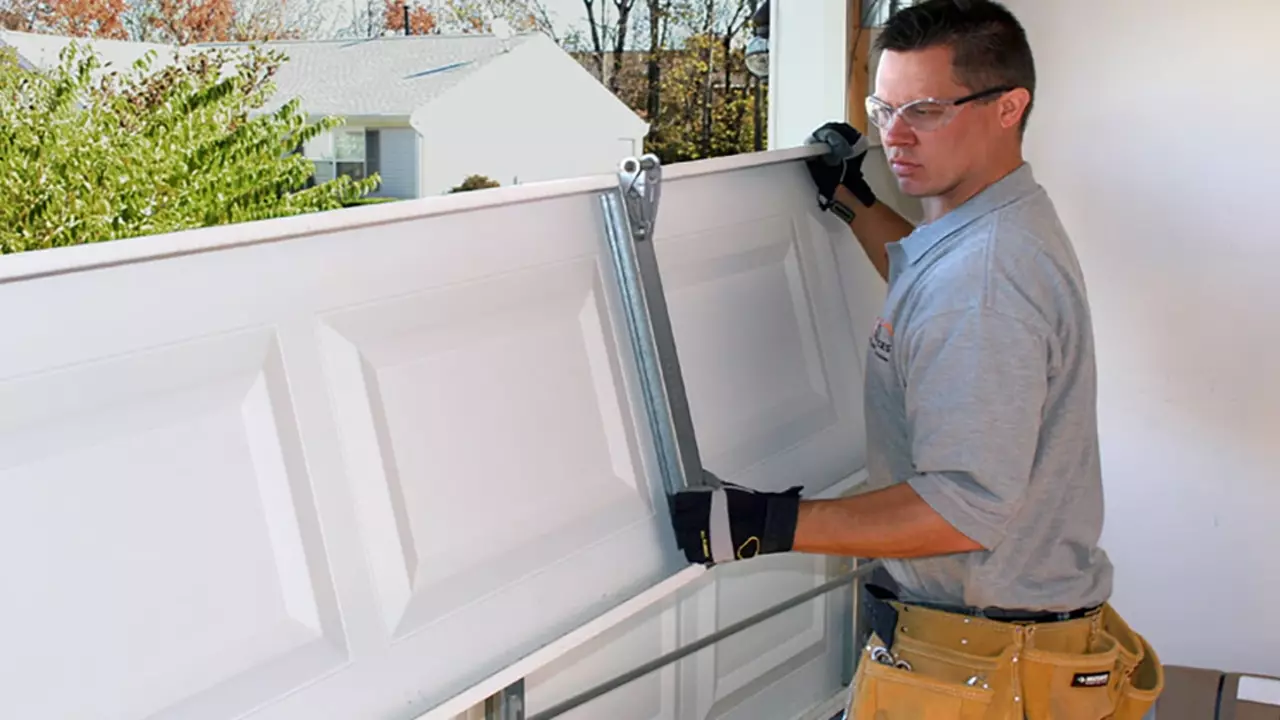
Understanding Garage Door Sensors
Let me paint you a picture. Imagine it's a glorious Tuesday morning, the sun is shining, my parakeet Oliver, is shuffling about chirping his favourite song. "Time to get work the done," I always say when sunshine breaks through the kitchen window, casting a slight velvet-glow on Oliver's wings. Today, I put on all my DIY gear to investigate the funky behaviors of my garage door sensor. But what exactly are these gadgets, you wonder?
For folks who are not in the know, sensors situated at the base of the door prevent the garage door from closing when an object is detected in its path for safety purposes. They are a crucial element of current garage doors and their malfunctioning can potentially result in costly inconveniences or worse, accidents. But don't worry, that's why we have handy bloggers like yours truly to tell you everything you need to know!
A Stroll Down Garage Door Sensor Lane
Nitty-gritty facts coming your way; the electronics part of this garage door mechanism is highly intriguing. I learned a few things when I had to repair my own garage door sensor here in beautiful Charlottetown - fun way to spend a weekend, am I right? Garage door sensors have been standard equipment for decades now, thanks to the U.S. Consumer Product Safety Commission under law in 1993 to ensure safety in homes.
These sensors work with an infrared beam that runs across the bottom of the door. The main idea is to detect if something or someone is in the way of the door as it descends, instructing the door to stop and reverse its course if the beam is interrupted. And this is where the problems usually start when we talk about damages or repair needs.
The Whys and Hows of Malfunctioning Garage Door Sensors
Before Oliver, I had a poodle named Jester. He was a bundle of energy, always darting in and out of the garage and knocking over the sensor in the process. So from personal experience and a lot of learning along the way, I’ve realized that issues with sensors can be frustratingly common. And it’s generally down to a handful of reasons.
The most common reason is when the photo-eye is not aligned properly, and the infrared beam cannot cross over to the other sensor, thus causing it to malfunction. Other reasons could range from dirt or grime on the sensor's lens, disconnected wires, or the sensor could just be on the fritz due to wear and tear over time.
Rolling up Your Sleeves – The DIY Approach to Repair
If there's one thing I enjoy more than Oliver's morning solos, it’s rolling up my sleeves and handling stuff myself. You too, can fix a malfunctioning garage door sensor by just following a few simple steps. Start with checking the alignment of the sensors by ensuring the LEDs on both sensors are steadily glowing. If you notice flashing lights, it could mean the sensors are not aligned.
Cleaning the photo-eye with a soft cloth and mild cleaner is a good next step. After you've done these and it still misbehaves, check the wires. If they need to be replaced, a bit of manual work and following the manufacturer's instructions should get you back in business. If you're lucky, you could have your garage door back to normal without having to spend a dime!
Professional Repair Costs
Something my old man always said was, when you can't DIY, hire a professional. The size of your pocket might not necessarily be directly proportional to the size of your garage door sensor problems. And let's face it, not everyone's as handy as this Daxton here. That’s where professional repair companies step in.
The cost of professional garage door sensor repair can vary significantly based on the exact issue, the cost of any necessary parts, labour time, and your location. Generally, you might find the repair cost to range between $50 and $200. In some cases, if the damage is too severe, it might be more economic to replace the entire unit; new garage door sensors usually run between $50 and $100.
To Replace or Not to Replace – That Is the Question
Before you go all Hamlet on your garage door sensor, take a breather. Depending on the age of the garage door sensor, sometimes replacing the unit could be the most effective solution. Simply put, if your sensor is older, it might be more prone to problems. Remember, depending on your door's warranty, sensor replacement might be covered.
The decision depends on the cost-effectiveness of repair versus replacement. Getting a new unit installed generally costs more because you would buy the new equipment and pay for the installation. On the other hand, repairing an old one could fix the immediate problem but keep in mind, it could lead to additional issues down the line.
Garage Door Sensors – Not a ‘Do Or Die’ Affair
As annoying as it can be when your garage door sensor decides to go on a temporary vacation, it's not the end of the world. Think of it as an opportunity to learn something new and save a penny or two. I fondly remember the first time my garage sensor played up and I had to get down to investigate, well, let's just say, it was a day full of mishaps and laughter.
In the end, the cost to repair a garage door sensor can be economical if you're willing to put in a bit of elbow grease or you can leave it to the professionals if mechanical tasks aren't your cup of tea. Just remember that sometimes, even things designed for comfort give us a little trouble, and that's just life. Just like how Oliver refuses to sing some days, but we still love him to bits, don't we?

Write a comment